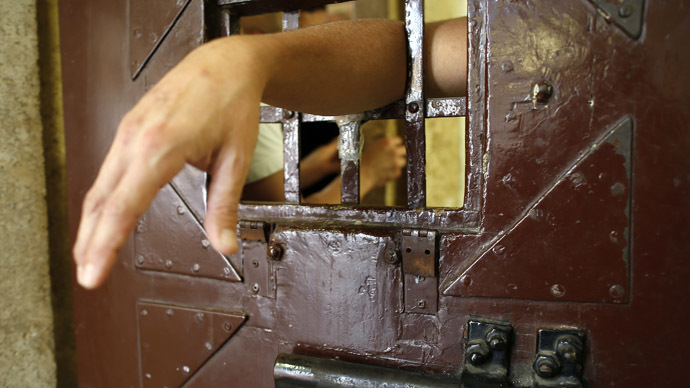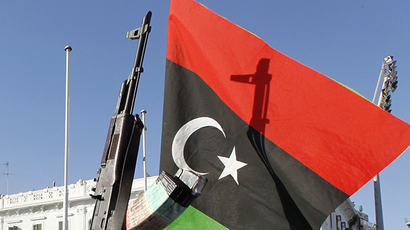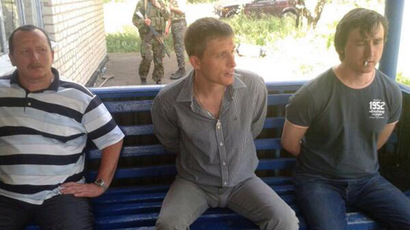Torture, no due process at Libyan jails – UN

Some 14,000 refugees and Libyans are festering in overcrowded prisons in the country, being subjected to torture, no due process and horrible confinement conditions, the UN stated on Friday.
“Detention of refugees and migrants in Libya, instead of being an exceptional measure, as required under international law, is widespread and prolonged,” UN human rights spokesman Rupert Colville said at a briefing, reported Reuters.
Fifty percent of all inmates are “deprived of their liberty
without regard for due process.” The majority have been
detained since 2011 – the year in which former leader Muammar
Gaddafi was overthrown.
Another half of those being held are refugees or migrants. Many
of them are from the Middle East or sub-Saharan Africa, who would
have tried to sail to Europe. Attempts at making the crossing are
a common problem. At least 34,800 people have made the crossing
from Africa to Italy already this year.
“Detention of refugees and migrants in Libya, instead of
being an exceptional measure, as required under international
law, is widespread and prolonged,” Colville told Reuters.
Twenty-seven detainees have died in custody last October,
according to the UN, possibly from torture.
“They do not usually have the means to challenge their
detention and are kept in extremely poor conditions, with chronic
overcrowding and lack of basic sanitary conditions. They are also
subject to ill-treatment and exploitation for labor,”
Colville added.
Colville commented on the instability rocking the country since
2011. Local militias have been spreading chaos and political
settlement has been extremely difficult; there have been repeated
attacks and threats made against those attempting to assume the
PMs office.
Two weeks ago armed gunmen loyal to rogue General Khalifa Haftar
attacked Libya’s parliament, announcing its suspension. Forces
loyal to Haftar claim to be purging the nation of Islamist
militias while authorities accuse them of staging a coup.
Libya's parliament remains split by rivalries, with few
democratic reforms made since 2011. The country is now under the
rule of its third prime minister since March, and a new
constitution is still not ready.
“Hardly a week goes by without some assassination, armed groups of ambushing people and killing them, bombs and all the rest of it,” Colville stated, adding that: “It's a very alarming situation and it just continues all the time and seems if anything to be getting a bit worse.”















